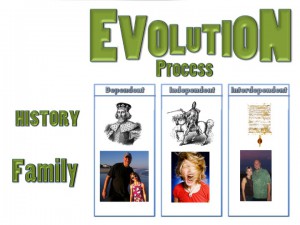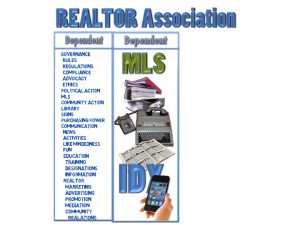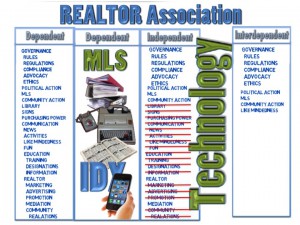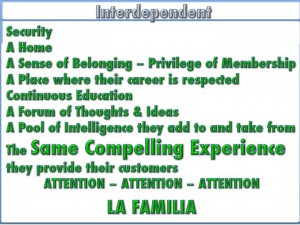

10 Signs You Really Are a Leader (and Might Not Know it)
by Lolly Daskal
We often feel that to be a leader you need to be born a leader, or be drawn to leadership, or have a leader-ly position.
We think of leadership as a title that has to be deserved or earned.
But leaders are rarely, if ever, born. If we had to isolate a factor that creates leaders, it’s probably some combination of circumstance and persistence.
Many, many leaders walk among us–in all kinds of people, places and positions.
Some of the greatest leaders you’ll ever meet aren’t even aware of their own leadership.
Here are 10 signs that you may be one of them:
1. You have an open mind and seek out other people’s opinions. If people are drawn to you because you are open to others people’s opinions, you are a leader.
2. You offer advice and counsel. If you find yourself advising your colleagues, and your friends are asking you to counsel them–if people seem to seek out and value what you say–then your empathy is strong and your perspective has real-world usefulness to those around you. If you often help those around you navigate their rough patches, you are a leader.
3. People count on you. If people rely on you, it follows that they trust you to follow through and deliver on your promises. If you hold yourself accountable and demonstrate the kind of day-in, day-out responsibility that leads others to trust you, you are a leader.
4. You’re a good LISTENER and people confide in you. Being able to listen to others, having people speak to you frankly without worrying about who you’ll tell or how you might use that knowledge against them, are signs of strong leadership–not to mention of being a nice person. If you understand that listening is more important than speaking, and if people know they can confide in you, you are a leader.
5. Others follow your example. The most powerful form of leadership isn’t persuasion or argument or force, but example. Whether times are good or bad, people notice who’s present, who’s effective, who’s working hard without distraction. When that person is you, others naturally follow you–and you are a leader.
6. You insist on excellence (NOT PERFECTION). As Aristotle said, we are what we repeatedly do, and therefore excellence is not an act but a habit. When you are in the habit of standing up for excellence and you hold yourself and those around you responsible for quality, you are telling others that you act rather than talk, show rather than say, deliver rather than promise. If you are not making excuses or blaming others but holding up the standard of excellence and quality, you are a leader.
7. You have a positive attitude. Positive, optimistic people make people around them happy. A positive outlook doesn’t blind you to problems or issues but allows you to seek out something good in almost every situation and to know that eventually things will be all right. It’s the kind of spirit that keeps people motivated and spreads optimism, and it means you are a leader.
8. You treat people with respect. Knowledge may give you power, being smart may give you an advantage, but when you give respect you will always receive respect in return. If you look for the good in everyone you meet and respect them for who they are, it’s likely that they hold you in high esteem and that you are a leader.
9. You genuinely care about others. If you spend time supporting, guiding and sharing your knowledge with those around you, giving them the opportunity to achieve success, and if you care about their well-being and do all you can to help them attain their own success, you are a leader.
10. You are confident and passionate. Most people are always watching each other, looking for cues about how to behave. Being confident means moving with assurance, being passionate about what you believe and refusing to let anything get in your way. If you work consistently toward a cause with vision and confidence, you are a leader.
Are you failing to see something important within yourself? Weigh yourself against these traits, reconsider what you think you know, and recognize yourself for the leader you may really be.
WHAT ONE TRAIT IS MOST PRIZED BY INCREDIBLE LEADERS?
The Ability to Listen
ROSSI’S LISTENING VIDEO
“Leadership means giving control rather than taking control and creating leaders rather than forging followers.” David Marquet author
Word to remove from vocabulary: TRY
The word “Try” actually tells the subconscious mind that it doesn’t have to do it.
BUZZ OUT THE WORD “TRY”!
Practice Capture Communication
——–Repeat what others say to their satisfaction
CARDS
Interview your partner USING CAPTURE COMMUNICATION – take notes
Who?
From?
Local Assn.?
Favorite Leader?
Why?
What could you teach?
What do you want to learn from this class?
CLEAR
CHANGE ——-
What motivates you to LEAD? What is Your Why you want to be involved? Service to my craft – Part of my legacy – Personal and Professional Growth – To champion Diversity – Desire to continually learn – Passion – Education – It’s a part of completing a task – Part of the Journey – Be a part of change
Rossi’s Video on Uncovering Why “People Don’t Buy What You Do. They Buy Why You Do It”.
More people will follow, support, and listen to a Leader
WHO KNOWS WHY THEY LEAD.
WHAT IS YOUR WHY?

The complexity of real estate today takes commitment
Look at this diagram and think of the Data Collection Points.

WITH DISRUPTION ON ALL FRONTS
Today’s Leader Must Be On Purpose!
When You Love It
You’re Great At It
The World Needs It
You Are Paid For it
You’re On Purpose
My Purpose Today is to make a difference!
Below is a blog post from lolly-daskal
As leaders, we all want to know that we’re making a difference, but most of us have to work at overcoming the lesser instincts of the day-to-day.
Be a Compelling Leader –
Here are some things you can do today to begin living your most compelling life:
1. Be bold.
Dare to instigate! Take chances, create opportunities, make things happen. Risk greatness.
2. Find your unique self and wear it like a badge of honor.
Turn your back on conformity. Figure out what makes you different and then embrace it. The world needs what you have.
 Be SOLD on the one product you sell
Be SOLD on the one product you sell
Learned Optimism Test
(adapted from Dr. Martin Seligman’s book, “Learned Optimism”)
OPTIMISTIC or PESSIMISTIC?
Rossi’s Vlog on Empathy vs. Sympathy
3. Conquer the unknown.
Try something new and don’t cringe at fear. Leaving the safe and ordinary is the only way to get to the extraordinary.

In my book, Dog Eat Dog & Vice Versa – I HAVE A COPY FOR EACH OF YOU –
I devoted a whole chapter to this.
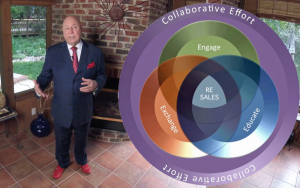 4. Be inclusive.
4. Be inclusive.
The solitary hero is a myth; your allies are your greatest strength. Those who pride themselves on self-reliance have no safety net and living a one-dimensional story is pretty limiting.
5. Be confident (but not arrogant).
Show your self-assurance. Confidence gives voice to your gifts.

6. Be generous with everyone you meet.
Generosity isn’t just about money. Make introductions, teach what you know, reach out, send a text, share everything you can.
7. Never miss an opportunity to give a compliment.
A sincere compliment is among the greatest of gifts. If you admire someone, if someone does something extraordinary (or something ordinary very well), if something goes right, then say so – in public, if possible.
8. Say no so you can say yes.
Not everything that comes along is worthwhile and not every opportunity is right for you. Say no to the things that drag you down to make room for the things that matter most to you.
No is a complete sentence.
9. Practice humility.
When you’re sincerely humble in your heart and mind, the connections you make with others take on a different tone. Ask questions, listen, stay open, and remember, you don’t know everything.
10. Stand for something.
Leave no room for doubt about your passion for the people, places, and principles that are dear to you. A compelling purpose is a cause worth sharing.
Above all, to become the most compelling version of yourself, look within to find the heart of all that matters to you. Then go live it.
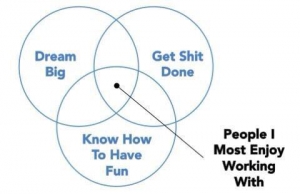
Don’t “Don’t think of the Statue of Liberty.” “Don’t is a word that disappears from your thoughts. Everything we do is a habit.
Words that show weakness. These words are not always triggers about confidence levels but they are my first signal that something is amiss. They make me think the sender is not that sure about the product or service. And they are dead giveaways that I need to question what the person says.
1. Might Be careful when you tell people you “might” do something. Are you sure about that? No one is asking you to solve world peace. When you say you “might” finish a report, it implies you lack some ability, don’t manage your time well, or have too many priorities.
2. Won’t Here’s an obvious word to avoid in your emails. Anyone who says he or she “won’t” do something or “won’t” attend a meeting is generating a negative vibe. Be more decisive: Either accept an invitation or reject it; using the word won’t suggests hesitancy.
3. Usually This is a trigger word in email that makes it obvious to everyone that you don’t have all the facts. If you say the accounting department “usually” doesn’t approve your expense reports or the boss is “usually” late to work, it means you’re stretching the truth.
4. Suspect Unless you are talking about a suspect in a trial, avoid saying you “suspect” anything. You’re not Sherlock Holmes. Just use direct terms: You know an investor is pulling out of the project and here’s why; or you have facts to support your conclusion on a new marketing plan.
5. Impossible I’ll bet Mark Zuckerberg has never used the word impossible in an email. The recipient will lose confidence in you quickly. State why something might be hard or difficult or just don’t agree to a course of action. Don’t bother telling people it’s impossible.
6. Worried We all worry about the stresses of life. Telling people you are worried makes it seem as if you lack confidence in your abilities. If you are worried, don’t bother saying that to anyone – just express what you are concerned about and offer solutions.
7. Confused Expressing your confusion will create even more confusion. It’s better to just say what you are confused about and ask questions. Saying you are “confused” gives people the impression that either you don’t understand something or that the topic is confusing to you.
8. Need We all have needs in life. When you express those needs over and over again, it makes you look needy. I “need” you to come to work early, I “need” you to get that report done. Avoid saying “need” and express requirements more directly.
9. Quandary Have you sent a message and said you were in a “quandary”? You should know that the word means you are in a total state of perplexity. I mean, you are really perplexed. That’s not often the case when it comes to a new business proposal or fundraising round.
10. Likely Few of us are in the business of predicting the future. If you say something is “likely”, you are expressing to the recipient that you are not really sure about the topic and you don’t have all the facts yet. It’s likely that you just lack confidence.
Dr. Martin Seligman (Penn State) known as the father of the new science of positive psychology, draws on more than twenty years of clinical research to demonstrate how optimism enchances the quality of life and how anyone can learn to practice it. Offering many simple techniques, Dr. Seligman explains how to break an “I—give-up” habit, develop a more constructive explanatory style for interpreting your behavior and experience the benefits of a more positive interior dialogue. These skills can help break up depression, boost your immune system, better develop your potential, and make you happier. With generous additional advice on how to encourage optimistic behavior at school, at work and in children, Learned Optimism is both profound and practical – and valuable for every phase of life.
VIDEO ON MOTIVATING OTHERS
Here is a GREAT Video on How to Motivate Others
What you’ll find is not what you’ll expect.
Seven Habits of Exceptional Customer Experience Leaders
How to Stop Pissing & Moaning: Recommendations & Strategies on How to Stop Yourself & Others from Pissing & Moaning
by Michael Vance
STOP IT!
Buried Alive in a Box
7 Traits of Highly Effective Leaders
A remarkable amount of time, effort, and money has been devoted to the study of leadership. Despite all this research, there is little agreement about exactly what leadership is.
Still, people know effective leadership when they see it. And while great leaders may sometimes be born that way, there are certain traits that great leaders share in common that anyone can practice and adopt to become more effective.
What qualities are those? Well, to be a highly effective leader, you must …
… inspire action.
Try to paint a vision of the future that inspires your people to do whatever it takes to get there. The best leaders also clear away the organizational roadblocks that constrain employees’ natural creativity and initiative, unleashing a tremendous amount of energy in the process.
… be optimistic.
We all want to work with and for people who lift us up into the clouds instead of dragging us down into the mud. Make sure to seek out the positives in your people, helping them overcome their own feelings of self-doubt and spreading optimism throughout your organization.
… have integrity.
Research shows that the top thing that employees want from their leaders is integrity. Be honest, fair, candid and forthright, and treat everyone in the same way that you yourself would want to be treated.
… support and facilitate your team.
For people to do their very best work, they need an organizational environment that supports them by making it safe to take risks, to tell the truth, and to speak up … without being punished for doing so. Support your employees by creating this kind of environment, and it will facilitate their progress toward attaining your organization’s goals.
… have confidence.
Highly effective leaders know deep down inside that they and their team can accomplish anything they set their minds to. Failure is not an option. Tentative leaders make for tentative employees. If you’re confident, your people will be too.
… communicate.
In any organization, knowledge is power, and great leaders ensure that every employee, from the very top to the very bottom of the org chart, is provided with complete and up-to-date information about the organization’s goals, performance, successes and failures. To achieve this level of connection, you should also provide ample channels for two-way communication between employees and managers, actively soliciting their ideas for improvement and rewarding employees for submitting them.
… be decisive.
One of the most basic duties of any leader is to make decisions. Highly effective leaders aren’t afraid to be decisive and to make tough calls quickly when circumstances require it. Once you have all the information you need to make an informed decision, then don’t hesitate–make it. And once you make a decision, then stick with it unless there is a particularly compelling reason for you to change it.
No matter what type of organization or industry you’re in, it’s possible to become a more effective leader, inspiring your people to give their very best every day of the week. Make a point of practicing these 7 leadership traits, and you will be a highly effective leader too.
To Sell is Human – Rossi’s Video Review
As a Leader of a volunteer organization,
you cannot dismiss members. This will
only assist you in qualifying others to lead.
We all are Winners. However, a Whiner and a Wiener resides within us as well.
ALL must be given a chance to volunteer. Careful not to judge others on their mood
at the time, as soon it will change and, hopefully, for the better.
“In their hearts, all members of
our tribe know this truth: the only
way to help yourself is to help others.”
As it applies to the Real Estate Business
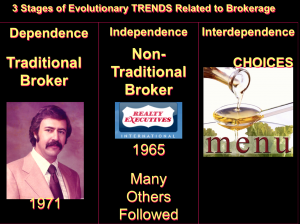
The Product

The CONSUMER
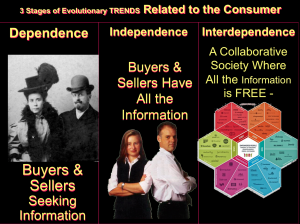
ALL OF THE ABOVE APPLY TO YOUR MEMBERS
“Memories can be wonderful or powerful, but a wise warrior does not store them in the future.”
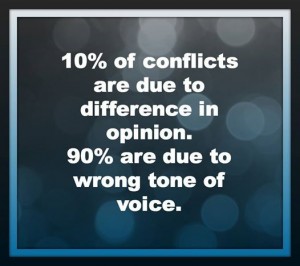
Let’s apply this process to:

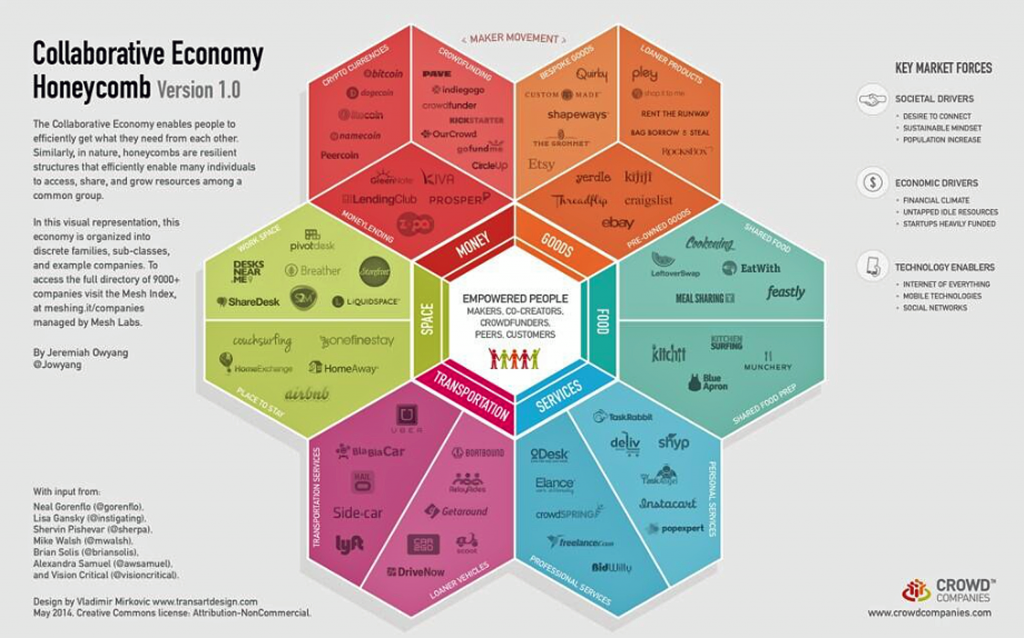
Think Collaborative Society
“Some people come into our lives
and quickly go, others leave footprints
in our hearts and we are changed forever.”
It’s Up To YOU To Create
Compelling Member Experiences












